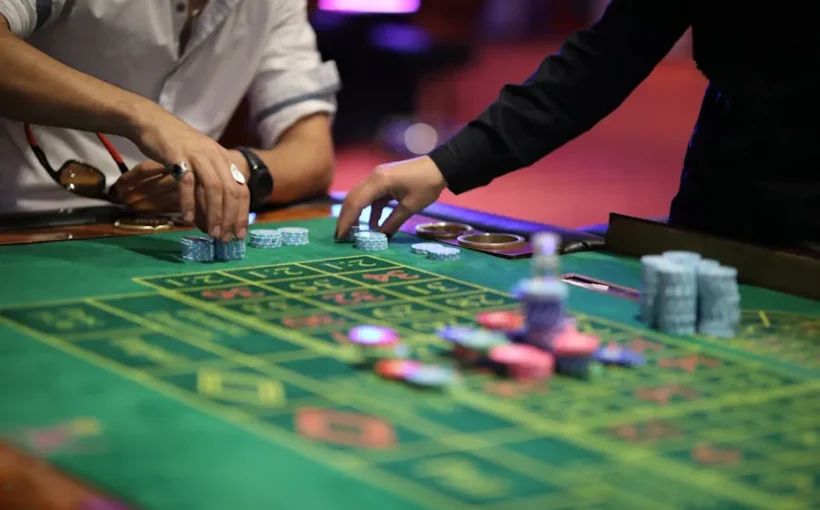Roulette probability problem What is the probability of doubling your money?
dresdnhope asked:
You are at the roulette table and you can only bet $1 per spin, and can only bet on red or black (so the probability of winning on each spin is 18/38). You play until you either lose all your money or double your money, an then stop. What is the probability of doubling your money if you start with n dollars? I’ve figured out the case for 1, 2, and 4 dollars through examining the probaility trees and summing the series for the spins, but is there a general method?
Thanks, but I’m not asking the probability of doubling my money the fastest way, I’m asking for the total probability of doubling your money, given that you don’t leave until you’ve doubled your money or lost all your money. For example, starting with 2 dollars, after the first spin you have a 47.368% chance of having 3 dollars and a 52.632% chance of having 1 dollar. After the second spin, you have a p=(18/38)^2 of having doubled your money, a p=(20/38)^2 chance of having lost all your money, and a p=2*(18/38)*(20/38) of having 2 dollars, so you bet at least two more times. Theoretically there is an infinitesimile chance of staying at the table for thousands or hundreds of thousands of spins. Is there a general way figure out the total probability, for any n dollar amount? I can’t figure out anything except working out the overall probabilities of ending with double the money with each spin and adding.
Answer
To find the probability of doubling your money in a roulette game with an initial bankroll of n dollars, you can use the following formula:
P(double) = (1 – (p/q))^n / (1 – (p/q)^(2n))
Where:
- P(double) is the probability of doubling your money
- p is the probability of winning a single bet (18/38 for betting on red or black)
- q is the probability of losing a single bet (20/38 for betting on red or black)
- n is the initial bankroll in dollars
This formula is derived from the concept of a random walk and can be used to find the probability of doubling your money for any initial bankroll n.
For example, if you start with $2:
P(double) = (1 – (18/38)^2) / (1 – (18/38)^4) ? 0.4917
This means that you have approximately a 49.17% chance of doubling your money if you start with $2.
Keep in mind that this formula assumes that you will continue betting until you either double your money or lose it all, and it only considers bets on red or black. The probabilities will be different if you consider other betting options or strategies.


I dont think the amount of money you start with changes anything. Double and zero are always equally ‘distant’ from what you have. Yr always gonna be slightly more likely to lose everything.
I do not really get the question. Do you pay 1 dollar each time you play?or you do not need to pay anything to play?
This is the classic random walk problem. The solution:
If p is the probability of winning, and 1-p the probability of losing, let r = p/(1-p). The probability of losing A dollars before winning B dollars is
(1-r^B)/(1-r^(A+B))
Reference: Goodman and Ratti, Finite Mathematics with Applications
The derivation of this statement is via a study of Markov chains and linear difference equations. A very concise discussion is at